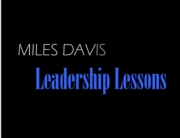Much has been written on the benefits of including independent voices on boards for closely-held and family businesses. So why do I and other advisors get so much resistance when recommending a Board of Advisors to our clients? While I may not agree, I understand resistance to adding independent, voting members to a board of directors. But a Board of Advisors is just that: A group of trusted advisors without a vote in the formal decision making process.
This resistance can often be attributed to a lack of understanding of the Board of Advisors’ role and benefits. To clarify these issues, this blog looks to a surprising early reference to advisory boards while my next blog will offer guidance on the choice of members for your Board of Advisors.
The early reference to advisory boards is the Bible. Specifically, the book of Numbers, Chapter 11. Feeling the weight of leading the Israelites, Moses says to God: “I cannot carry all this … alone, because it is too heavy for me.” God’s answer is to form what is essentially a Board of Advisors: “Gather …seventy of Israel’s elders of whom you know to be elders of the people and officers over them, … I will come down and speak with you …, and I will draw upon the spirit that is on you and put it upon them, they shall share the burden of the people with you, and you shall not bear it alone.”
One commentator, Deborah Meyer, interprets this passage as showing us that “[a]s leaders, we have to know when to bring in others to help share the burden.” The relevance to business is clear: Owning and running a business can be a heavy burden and we need assistance to help this carry this weight.
This passage also highlights the importance of choosing advisors with reputable reputations (“elders” and “officers”) who you know personally and can, thus, trust. But this is not sufficient. You must also give them the “spirit”. Provide them with an understanding of the direction you envision for the business and your strategy for obtaining these goals. Only by sharing this knowledge will you be able to share the “burden”.
I would remiss if I didn’t point out another of Ms. Meyer’s commentary. In a preceding passage in Numbers, Moses says “Did I conceive all this people, did I bear them, that You shall say to me, ‘Carry them in your bosom as a nurse carries an infant,’ to the land that You have promised…?” Ms. Meyers notes that when males “read this, they can realize that in order to lead people, you must understand the power of birth/creation and nurturing.” Put into business terms, it is not enough to just appoint or designate the next CEO. You also have to “nurture” future leaders with training and guidance on both the technical skills needed to run the business as well as what it means it be a leader.
To summarize and stimulate further discussion, I rely on Ms. Meyer’s words: “To be a truly powerful leader, we need to bring together all of those with wisdom to contribute ….” For family and closely-held business, this comes in the form of a carefully chosen, well balanced Board of Advisors.
“Now when you imagine a powerful leader, what comes to your mind?”










































































[…] Previous […]